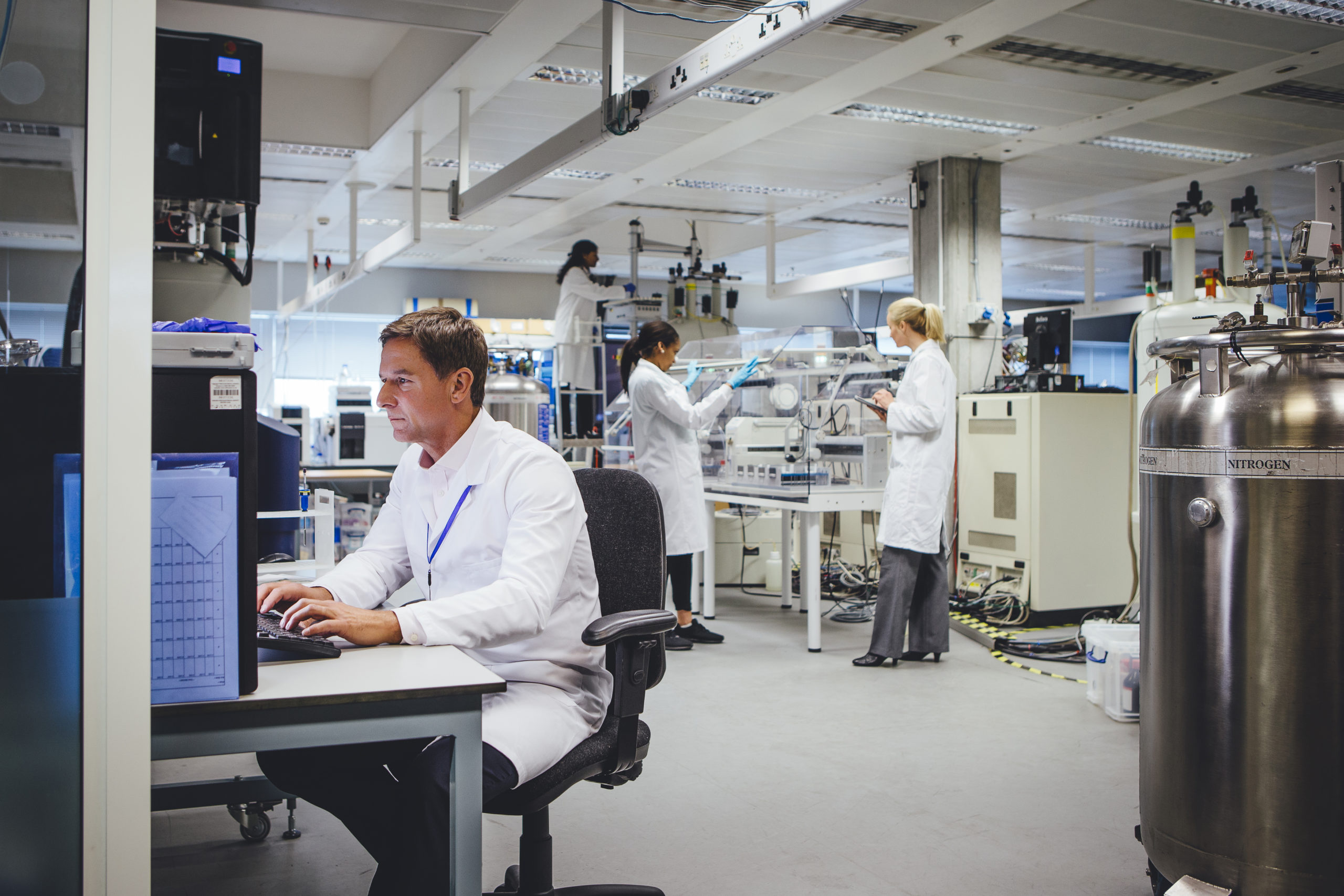Summary
The economic impact of COVID-19 continues to dominate the Australian Budget, with tonight’s Budget, the second handed down in just seven months. Like the last one, this is a big spending Budget, but the focus has shifted from providing immediate stimulus to longer term recovery and Australia’s future prosperity. In the health sector, policy reform is focused on aged care and mental health.
Apart from COVID, the biggest health issue the Australian Government has had to grapple with in the last 12 months is aged care. The Royal Commission into Aged Care Quality and Safety provided the Government with 148 recommendations earlier this year. Until tonight, the Government had not provided a substantial response to the report.
This Budget outlines an additional $17.7 billion over five years, seeking to address the needs of aged Australians living at home and those in residential care. This equates to around half of what is called for overall in the Royal Commission’s Final Report. The Prime Minister’s press release states the Government has accepted 126 of the 148 recommendations, we are awaiting the Government’s detailed response to the Royal Commission – particularly the recommendations for dedicated funding for aged care and ageing research. The proposals from the Royal Commissioners in relation to funding for innovation and research have not been funded in this Budget.
Mental Health has also been under the spotlight, including the impact of COVID-19 on mental health. The Productivity Commission provided the Government with a report last year on what could be done to improve mental health, and earlier this year the Department of Health and Ageing consulted on what measures from the report should be implemented, and when.
Tonight’s budget provides $2.3 billion over four years from 2021-22 for the National Mental Health and Suicide Prevention Plan, including initiatives to be progressed with states and territories for a new national agreement on mental health and suicide prevention. The Government has indicated that it has accepted all the recommendations of the Productivity Commission Report on Mental Health and that the funding announced tonight is only phase one of its response. The only research specific funding announced as part of this package is establishment of an Eating Disorders Research Centre as part of a $26 million package of funding for eating disorders. Further funding for research-related aspects of the Productivity Commission’s recommendations may follow in future budgets. There is $117.2 million for data collection, in part to establish the evidence base for reforms. We will be seeking the advice of key mental health research experts to understand how this data can inform continuous, evidence-based improvement in mental health care for Australians.
While Preventative Health has gained attention from the Government in the last couple of years, the National Preventive Health Strategy is still very much a work in progress and there is only very limited additional funding for preventive health in tonight’s Budget. There is $1.9 million in 2021-22 for preventive health research and scoping activities, including a national health literacy strategy, to inform the National Preventive Health Strategy. Research Australia has previously advocated the need to improve health literacy (and digital health literacy) as a key measure to address health inequity and enable all Australians to better use technology to manage their health.
One of the key lessons from the COVID-19 pandemic is that we have become overly reliant on global supply chains for vital materials. This drove a new focus in last year’s Budget on manufacturing, with the announcement of $1.3 billion over five years from 2020-21 for the Modern Manufacturing Initiative. While the Government seems satisfied this is enough, Research Australia believes more needs to be done, and has proposed raising annual Government spending on R&D to 0.75% of GDP, setting a target for Australia to become a net exporter of pharmaceuticals by 2035, and using the Government’s influence as a key buyer of products and services to boost Australian innovation.
A key measure in this regard is a patent box; a tax deduction provided to companies that manufacture in Australia using Australian developed IP (patents). The patent box will only apply to income derived from Australian medical and biotechnology patents, with consideration to be given to the clean energy sector. It provides a concessional effective corporate tax rate of 17 per cent, with the concession applying from income years starting on or after 1 July 2022. Such a scheme has operated in the UK for many years and is designed to support high value manufacturing in Australia, complementing the R&D Tax Incentive. Research Australia has been a long-term advocate of patent box tax treatment, along with CSL and others in our sector, and this is a significant win for health and medical research.
Much has been said recently about mRNA manufacture of vaccines and therapeutics, with the Victorian and NSW Governments both announcing support and Victoria proposing to invest $50 million. In the Budget tonight the Government has announced that it, too, is acting. It will provide an undisclosed amount of funding (commercially sensitive) to the Department of Industry, Science, Energy and Resources to work with the Department of Health to develop an onshore mRNA vaccine manufacturing capability in Australia. Research Australia called for such a commitment from the Government in our Pre-Budget Submission and we have been calling for this facility privately and publicly, to encourage this sovereign capability .
While the MRFF funding proceeds as outlined in the Government’s MRFF 10 year Plan, the funding to the NHMRC’s Medical Research Endowment Account continues to decline in real terms.
Medical Research Future Fund
Funding from the MRFF
The MRFF reached the target of $20 billion of capital in August 2020. Tonight’s Budget sees this balance maintained over the forward estimates.
Forecast spending from the MRFF remains largely as expected over the forward estimates. While only $455 million is available from the MRFF to fund research and innovation in 2021/22 due to lower-than-expected investment returns, the Government is maintaining spending this financial year by providing an additional $175 million for MRFF funding from consolidated revenue (announced in the December 2020 mid-year budget). At this stage the Government expects the investment returns to recover this financial year, with $650 million available to fund medical research and innovation in 2022/23.
MRFF expenditure
| $m. |
20-21 |
21-22 |
22-23 |
23-24 |
24-25 |
| MRFF Funding 2021 Budget |
579.9 |
455.0 |
650.0 |
650.0 |
650.0 |
NHMRC and ARC Funding
In Research Australia’s Pre- Budget Submission and our Pre-Election Statement we continue to call for increases in funding for the NHMRC and ARC’s research programs. This Budget sees both schemes continue to decline in real terms, which is of genuine concern to the health and medical research community.
NHMRC Programs
The 2021/22 Budget reveals funding for the NHMRC’s programs continuing to grow very slightly, and only slightly faster than was forecast in last year’s budget. The increase in this financial year is 1,1%, with annual increases of around 1% thereafter. This is lower than the forecast CPI of 3.5%% for 2020-21 and CPI of between 1.75% and 2.5% expected in subsequent years. In effect, NHMRC funding continues to decline in real terms, as it has done for many years now. Research Australia remains concerned about this deficit because research and its outcomes is a long-term commitment.
NHMRC MREA Funding
| $m. |
20-21 |
21-22 |
22-23 |
23-24 |
24-25 |
| Funding to MREA
2021 Budget |
853,864 |
863,266 |
875,362 |
887,588 |
899,124 |
| Funding to MREA
2020 Budget |
853,864 |
862,412 |
872,770 |
884,960 |
N/A |
ARC Programs
The Australian Research Council’s Funding Programs are critical to Australian publicly funded research including to the life sciences and medical technologies.
Over the forward estimates, the funding to the ARC for the Discovery Program increases slightly each financial year and while higher than in last year’s Budget, the funding is at significantly lower levels than forecast in the 2019 Budget. In real terms funding to the Discovery Program declines over the forward estimates. Again, a cause for concern.
| $m. |
20-21 |
21-22 |
22-23 |
23-24 |
24-25 |
| Discovery 2021 Budget |
483,272 |
489,188 |
494,922 |
501,162 |
509,432 |
| Discovery 2020 Budget |
483.272 |
487.016 |
487.860 |
490.610 |
|
| Discovery 2019 Budget |
513.542 |
525.537 |
538.350 |
N/A |
|
The ARC Linkage Program has been singled out by the Government as an important component of Australia’s innovation system, and it was announced that from 1 July 2016 the Program would be open to continuous applications and decision making would be fast tracked.
Funding over the forward estimates is higher than forecast in last year’s budget, but future years fail to keep pace with inflation.
| $m. |
20-21 |
21-22 |
22-23 |
23-24 |
24-25 |
| Linkage 2021 Budget |
323.166 |
325.454 |
329.948 |
334.109 |
339.622 |
| Linkage 2020 Budget |
322.181 |
323.871 |
325.240 |
327.074 |
N/A |
| Linkage 2019 Budget |
288.788 |
295.246 |
301.741 |
N/A |
N/A |
While not funding ‘medical and dental research’, the ARC Linkage program remains important to the health and medical research and innovation sectors.
Research Support
In addition to providing funding for the ARC Linkage Program, the Department of Education and Training also provides funding to universities to help cover the indirect costs of research.
In last year’s Budget, the Government used the Research Support Program to provide a vital injection of $1 billion into higher education research in the current financial year. No further injection is provided in this year’s Budget and funding in is actually lower than was forecast in the 2019 Budget.
Research Support Program
| $m. |
20-21 |
21-22 |
22-23 |
23-24 |
24-25 |
| 2021 Budget |
1918.298 |
930.659 |
942.775 |
958.326 |
974.143 |
| 2020 Budget |
1918.298 |
926.490 |
929.270 |
938.107 |
N/A |
| 2019 Budget |
920.573 |
941.748 |
962.455 |
N/A |
N/A |
| 2018 Budget |
1,018.879 |
1,042.302 |
N/A |
N/A |
N/A |
Funding for the indirect costs of research funded by the MRFF is now provided from the Research Support Program. With the MRFF providing hundreds of millions of dollars in funding to universities over the next few years, beyond this financial year, a substantial increase in the Research Support Program is needed just to maintain the levels of research support funding for research projects at their current already inadequate level. The cuts to the Research Support Program beyond the one-off boost in 2020-21 represent a real and continued threat to the capacity of our universities to undertake vital health and medical research.
The issue of indirect research costs remains unresolved for the whole health and medical research sector and indeed publicly funded research more broadly. Research Australia continues to call for a whole of government approach to the issue of funding indirect research costs. Research Australia proposes that the Chief Scientist lead a review of the funding of indirect research costs to establish a sustainable and equitable funding program. In the short term, the pool of funding for the Research Support Program must be increased substantially.
Research Training
The Research Training Program (RTP) provides funding to universities to support higher degree by research students (mostly PhDs). Funding for the RTP also declined in absolute terms between the 2019 and 2020 Budgets, and have only partly recovered in this year’s Budget.
Research Training Program
| $m. |
20-21 |
21-22 |
22-23 |
23-24 |
24-25 |
| 2021 Budget |
1054.981 |
1069.182 |
1083.160 |
1100.967 |
1119.137 |
| 2020 Budget |
1054.981 |
1064.392 |
1067.585 |
1077.738 |
N/A |
| 2019 Budget |
1057.595 |
1081.921 |
1105.710 |
N/A |
N/A |
Industry PhDs
The Department of Industry will provide $1.1 million over two years from 2020-21 to create new employment pathways for students and boost financial incentives for universities to enrol students in ‘Industry PhDs’. This measure will introduce an additional weighting in the Research Training Program funding formula for PhD students who undertake an industry placement.
Research Commercialisation
In last year’s Budget the Government committed funding for a scoping study for a University Research Commercialisation Scheme to better translate and commercialise university research outputs. The development of the Scheme is still in train and there is no funding for the Scheme in this year’s Budget. It looks like this might have to wait until next year. Research Australia remains actively engaged in consultation with the Department of Prime Minister and Cabinet on this Scheme.
CRC Program
Funding forecasts for the CRC Program reflect a shift in some funding between 2019-20 and 2020-21. Beyond that, they are slightly lower over the forward estimates.
CRC Program $million
| $m. |
20-21 |
21-22 |
22-23 |
23-24 |
24-25 |
| 2021 Budget |
222,777 |
189,980 |
197,815 |
191,042 |
193,807 |
| 2020 Budget |
234,168 |
189,040 |
186,378 |
188,599 |
N/A |
| 2019 Budget |
187,356 |
192,239 |
191,223 |
N/A |
N/A |
The CRC Program is important to health and medical research and innovation with about one third of the CRCs funded over the life of the program being health related.
Conclusion
Research Australia will continue to provide analysis and comment in the coming days and weeks as well as seek further input from across the membership for your reactions and insight into the policy and funding announced for our sector; and how it affects or enhances your research and related activities as a result.
Ends …..








